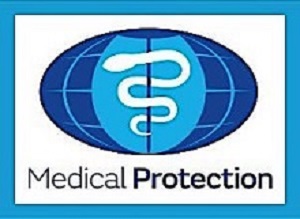
Not only does the State want to lessen its negligence claims burden by now trying to shed its traditional legal responsibility to indemnify its employees, writes Dr Tony Behrman. But State employed practitioners also face a significant range of other medico-legal risks that demand mitigation.
Behrman, MPS consultant writes:
Traditionally, and subject to the terms of the Treasury Regulations (of the Public Finance Management Act of 1999), the State has taken responsibility for claims in negligence by State patients against State employees. Understandably, given the burden of claims against the State, the State is looking at ways to lessen this burden. One of the more worrying steps taken for State employed health care professionals was the issuing of Personal Circular 43 of 2019 by Gauteng Health regarding the State pursuing employees for contributions in cases where the State loses in a clinical negligence case.
State patients, like those in private practice, are entitled to compensation should they be damaged due to negligent acts or omissions by State employees. State employees are covered in terms of the Treasury Regulations where the State is obliged to indemnify State employees for matters arising from acts or omissions occurring during the course of their duty whilst working for the State. The Treasury regulations hold the State responsible for compensating claimants and not recovering compensation from the State official as long as the official has not forfeited the State cover.
So, for the State to be able to claw back payment from an employee, the employee has to be liable in law and have forfeited their State cover. To forfeit State cover the employee either needs to be intentionally exceeding his or her powers, making use of alcohol or drugs, acting outside of the course and scope of his or her employment, acting recklessly, intentionally or unlawfully, failing to comply with or ignore a standing instruction or makes an admission that is detrimental to the State. We believe that unless the employee acts in transgression of one of these caveats then the State cannot claw back money from the employee.
The circular underlines the benefits of protection for State employed doctors, as it would be extremely expensive for a State employee to argue against such an onslaught. If the caveats leading to forfeiting cover have not been breached, members would be entitled to request Medical Protection assistance in seeking to rebut any inappropriate attempts by the State to recoup their expenditure.
So, with the exception of the caveats above, the State is responsible for defending and making any relevant payments with respect to claims in negligence; in legal parlance the State is vicariously liable for the acts or omissions, with the exception of the caveats, of its employees. Hopefully none of the caveats would apply to a doctor employed by the State.
As the State indemnifies their employees, Medical Protection subscriptions for State doctors are considerably lower than those of their colleagues in private practice. There do however remain other important reasons for State employees to be Medical Protection members as we can offer wide ranging non-claims assistance including: The significant risk of cases or complaints lodged against you at the HPCSA. These can be extremely traumatic, drag on for long periods of time and can very quickly become ruinously expensive – which is something that most state doctors don’t begin to realise. The average time between receiving that dreaded letter from the HPCSA and conclusion of the case can be anything between 2 and 4 years of your life.
Criminal proceedings arising from work done during your clinical practice (as evidenced by the case in which a respected colleague is currently serving a prison sentence for culpable homicide). It is highly unlikely that the State will defend their employees under such circumstances.
Disciplinary procedures launched by your state employers related to their clinical performance treatment and behaviour. State doctors who are members of Medical Protection are eligible to request assistance as well as representation at hearings such instances
We all are aware of the need to offer Good Samaritan acts at an accident scene, however the State does not assist should your intervention go awry, and you are reported to HPCSA or receive a complaint or claim. State doctors who are Medical Protection members may also request assistance in both claims and complaints resulting from GSA, worldwide.
Should a State doctor who is a member of Medical Protection become involved in and have to attend an inquest, they may request assistance in their preparation and representation, as the state does not offer this. Additionally, the primary responsibility of the State Attorney is to defend the State while a Medical Protection appointed lawyer’s is that of the member.
In this media frenzied society, State doctors holding Medical Protection membership are entitled to request assistance and advice on the handling of unwanted media attention.
State doctors who are Medical Protection members also enjoy:
• All the benefits of the MPS Risk Prevention Services’ workshops, online learning and webinars
• Access to free medicolegal advice, as well as a 24hr emergency advice line as well as
• A confidential 24/7 counselling service.
Medical Protection remains at the forefront of assisting both state and private doctors, dentists and allied healthcare professionals, and will keep you all informed of changes to the Treasury regulations should they occur.
